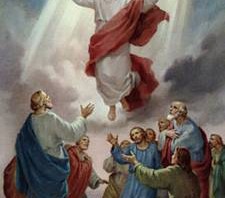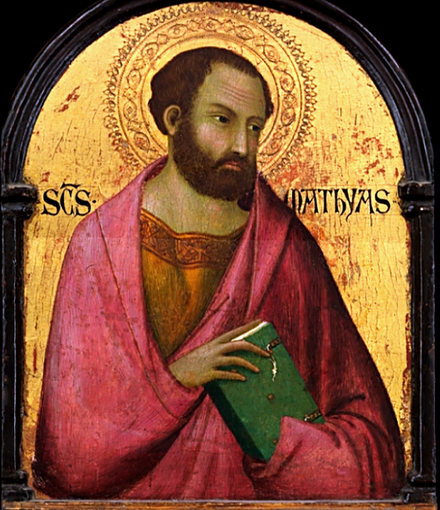Readings: Proverbs 3:13-35; Psalm 145; Philippians 2:1-5; Luke 6:27-38
Tonight as we come together to celebrate the Eucharist as a class for the last time, I would imagine you are experiencing a great many emotions. You may be feeling happy, even relieved, as you come to this milestone. Many of you have been at Notre Dame School for as many as ten years, and so this accomplishment has been a long time coming. You might also be feeling sad that you’re leaving behind some friends as they go to other high schools, or even uneasy because you’ll be heading into unknown territory. I’m sure you’re also feeling proud of the success you’ve had here at Notre Dame, particularly proud of the success that has led you to graduation this evening.
Success is the thing that everyone wants for you. Your parents want you to be successful, your teachers will be proud when you are successful. Even God wants you to be successful. But all those people may have different ideas of what success looks like. Some might see success as getting into a prestigious college. Others measure it by how much money you’ll eventually make. Maybe you will want to be the famous athlete, or the President of the United States. You might find success in inventing some new technology, or finding a cure for a disease. Success looks like a lot of different things.
Many people have written on what success is. Dale Carnegie wrote, “The person who gets the farthest is generally the one who is willing to do and dare. The sure-thing boat never gets far from shore.” Woody Allen once said, “Seventy percent of success in life is showing up.” Johann Sebastian Bach wrote, “I was made to work. If you are equally industrious, you will be equally successful.” I could go on and on quoting all sorts of famous people who have given their opinion on how to be successful, but I thought I might stop there and instead focus on what success looks like for disciples of the Lord.
Take a look at the Cross. Because that’s what success looks like for us believers in Christ. It looks like love beyond our wildest dreams. It looks like giving everything, trusting all the while that God will give us what we need in return. That’s how Jesus loves us, and that’s how we’re supposed to love one another too. He laid down his life for us, and we are called to do the same for others. We are probably not going to get nailed to a cross, but we are definitely called upon to give of ourselves, to lay down our lives for each other.
And so for the believer, success might look like becoming a missionary to bring God’s love to people in faraway lands. Or it might look like finding the cure for a disease without harming the unborn. Believers in Christ could become politicians too; helping to make the world a better place by standing up for what is right. Successful believers could become priests or religious sisters or brothers. They might even be parents who raise their children to respect others and have a strong relationship with God. They could be owners of businesses that practice their trade with integrity and a concern for those in need.
One thing is certain: successful believers will always have to sacrifice. Selfishness does not have a place in the life of a disciple and it will never even lead to real happiness anyway. A successful disciple might have to pass on a business deal because it looks shady, and trust God to give them something way better. Or she might give up a couple of years of her career in order to devote some time to working with the poor. A successful parent might have to put some of his or her plans on hold in order to raise a family. But successful disciples aren’t doormats either; they merely give of themselves and trust in God to give them real happiness.
And God does want you to be happy. In fact if you’re ever finding yourself unhappy in life – and most of us will be there at some point or another – stop and see if maybe you’re not doing what God wants you to do. Because, in my life, I will absolutely witness that the happiest times have been the times when I’ve stopped doing my own thing and listened to God. God is love, God is mercy, God is truth and beauty and grace, and he never wants anything for his children but the very best – just like any good parent.
Our Gospel tonight makes this all very clear. Jesus tells his disciples, which you well know includes every one of us here, to do everything I just said: love your enemies, do good to everyone, give when you don’t have to, love the people that are hard to love, give expecting nothing back. All of this stuff is sacrifice beyond belief. But then he makes a promise: “Give and gifts will be given to you; a good measure, packed together, shaken down, and overflowing…” When we give of ourselves and let go of the things that hold us back, then our hands are empty and ready to receive the enormous good gifts that God has in store for us. That, my friends, is real success.
For all these years, we have tried to give you the tools to grow into the people you were meant to become. If you remember these things and use them and grow in them, you will be successful, happy and blessed. The goal of all our lives is to get to heaven one day, and for the time you’ve been in our Catholic school, we have done our best to give you what you need to get there, because getting to heaven is the ultimate badge of success; it’s the greatest measure of our having become who we were meant to be. I hope that you will be reasonably happy in this life, but I really want you to be eternally happy with Christ in heaven one day. I look forward to seeing the great people you will surely become as you continue to be involved here at Notre Dame in the years to come. May God bless you in every moment of your lives. And don’t ever forget where your spiritual home is: right here at Notre Dame, because I really don’t want this to be goodbye.







You must be logged in to post a comment.